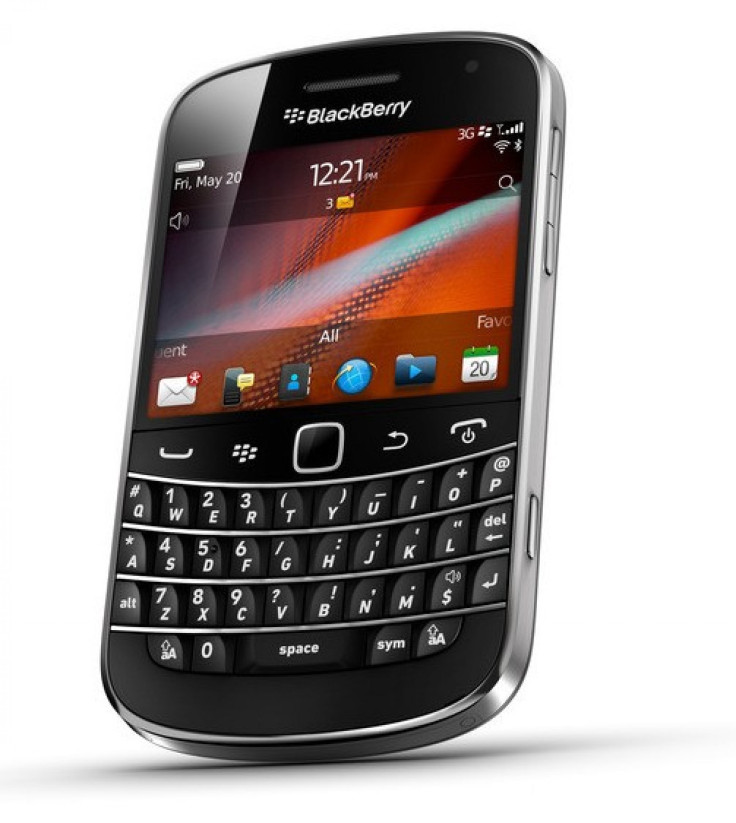RIM losing developers for its Blackberry phones

One thing is clear when companies compete with new and different consumer technologies in a fast changing, fast growth marketplace: Winners and losers will quickly be decided, and only or or two will emerge on top.
In the smartphone market, that means Apple (NASDAQ: AAPL) and Google (GOOG) are quickly leaving behind Research in Motion (RIM), makers of the Blackberry. The latest news from among a long list of negative stories involving RIM is that leading developers are abandoning the company to focus efforts on products for Apple's iPhone and Google's Android system.
Seesmic Inc., which develops social media applications and has produced apps for Miami Dolphins and Taylor Swift fans has stopped making products for RIM, and thus the Blackberry smartphone. Also defecting RIM is Purple Forge Corp., the company that produces apps for political campaigns and polling - a surprising move considering the U.S. is approaching a U.S. Presidential election that's quickly getting into full swing which promises to focus on social media and mobile personal communication technology.
You have to put your resources where the growth is, said Seesmic Chief Executive officer Loic Le Meur in an interview with Bloomberg. It's coming down to the explosive growth of the iPhone and Android operating systems.
Based in Waterloo, Ontario, RIM (NASDAQgs: RIMM) saw its global share of smartphones fall to just 12.9 in the first quarter of this year versus sales that gave the company a 19.7 share in the same quarter one year previous. Consumers have opted for Apple's iPhone, as the company experienced robust sales in the past year with its iPhone 4 which was added for the first time at Verizon. Since the iPhone had been exclusive with AT&T previously, many Verizon customers stayed with Blackberry phones until Verizon got a version of the iPhone to sell. Then, defections from RIM came fast.
RIM Losing Marketshare to Apple, Google
Similarly, in the first three months of 2011 Google's Android OS smartphone system gained 7 points of marketshare in the U.S. In the same period RIM's marketshare dropped by 5 points. Despite still holding onto more than 25 percent of the U.S. smartphone market, the growth trend for Apple and Google versus RIM's shrinkage factor is leading developers to stop making products for the company.
Developers also say the Blackberry is difficult to make products for because RIM devices come in different shapes and sizes and navigation is more difficult, using different devices, making product a development a difficult task.
As soon as RIM brought in a touchscreen and mixed it with a thumbwheel, a keyboard and shortcut keys, it made it really difficult and expensive to develop across devices, said Purple Force CEO Brian Hurley, in an interview with Bloomberg. What Apple scored big on is having a touch screen and a button and that's it.
Just last week RIM slashed forecasts for the current fiscal quarter after a dismal second quarter. The announcement punished the company's Canadian and U.S. stock shares, sending them down as much as 15 percent. RIM is trying to quickly and develop new Blackberry products to compete with Apple's iPhone and Google's powerful Android system, which controls more than 30 percent of the U.S. market and growing, fast, but the company said the products may not reach the marketplace until late August of this year.
That's a problem since Apple is taking the technology headlines lately with speculation over the release of its forthcoming iPhone 5, likely to be out by mid-September. Apple is expected to take a big leap with the iPhone 5, providing a bigger screen, more operating power and metal casing among other advancements. Also, an August delay would potentially force Blackberry to miss many sales that occur in the back-to-school season.
Analysts had previously pegged RIM's smartphone product sales at 14 million or more for the current quarter but forecasts were re-adjusted to the range of 11 million to 12.5 million units.
FIrm Says Dual Leadership Positions at RIM Should Be Split
Also, late last week Glass, Lewis & Co., which advises investors that have more than $15 trillion under management, said Research in Motion should support a proposed split in the chairman and CEO roles which are now held by jointly by Jim Balsille and Mike Lazaridis. Glass Lewis & Co. is a proxy firm that advises large institutional investors on voting issues.
A shareholder proxy resolution calling for the change in leadership to gain a more effective checks and balance leadership system is filed with RIM and scheduled for a vote at its July 12 meeting. The advisory firm noted RIM's turbulent start in the first half of fiscal year 2012 and that investor confidence is evaporating. The Blackberry maker has undergone months of controversy and speculation about its future as significant management changes have occurred, with the chief marketing officer and two vice presidents leaving the company.
We are concerned that the current co-chair/co-CEO structure provides inadequate independent checks on executives and management, particularly since the co-CEOs founded the company and are its largest shareholders, the Glass Lewis report states.
The company, of course, has urged shareholders to vote against the proxy, keeping its founders and largest shareholders in the dual leadership role.
© Copyright IBTimes 2024. All rights reserved.











